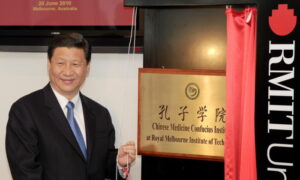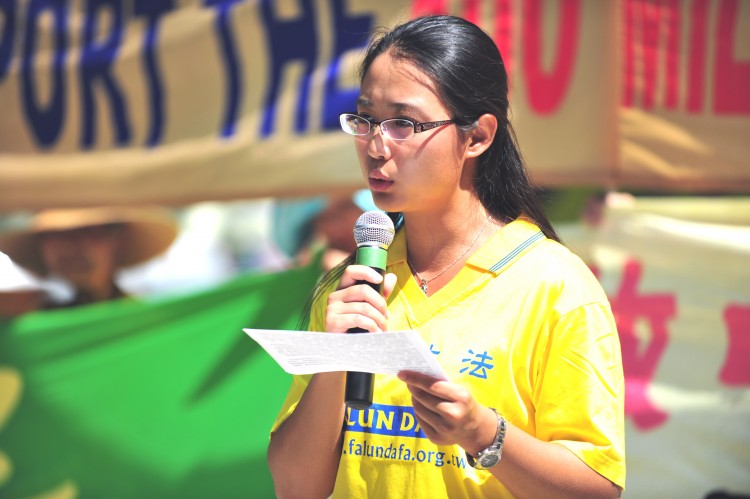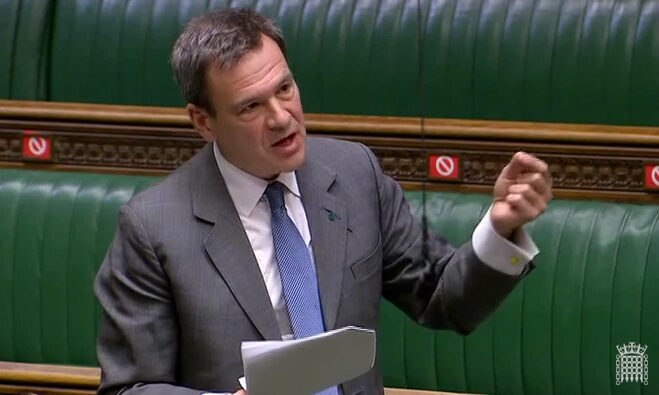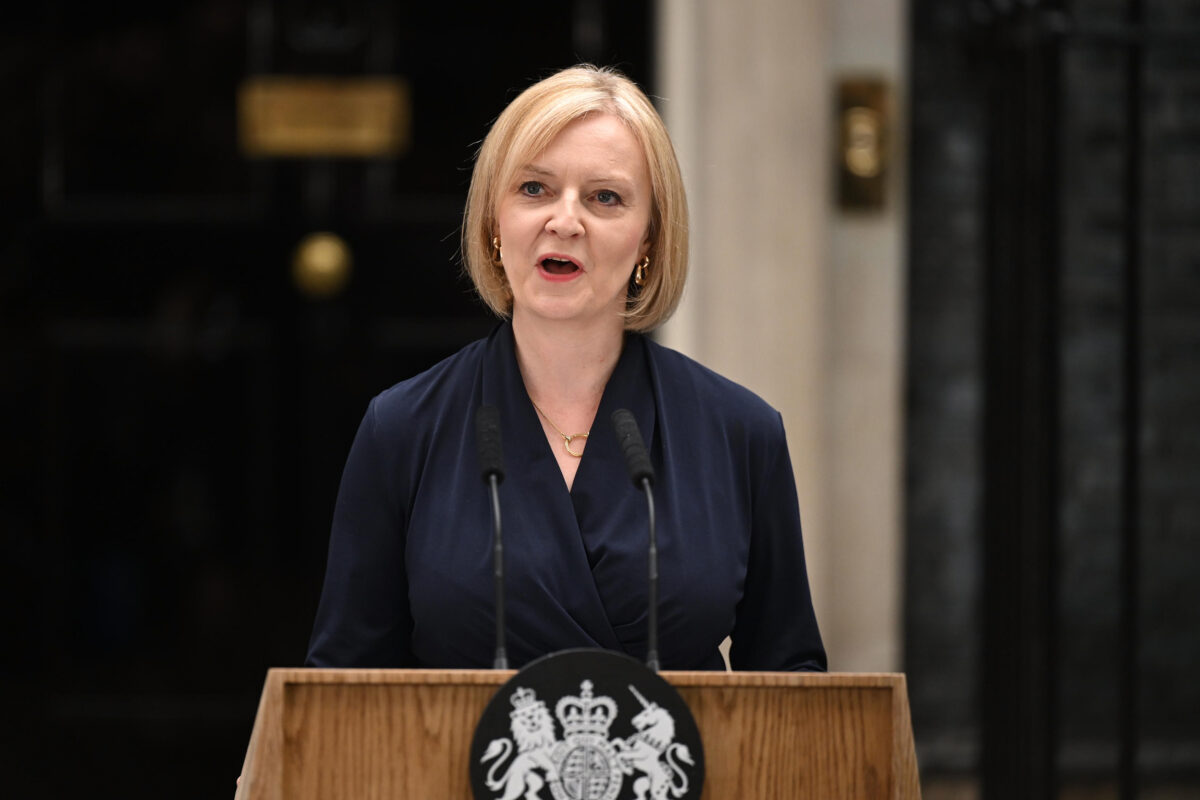Confucius Institutes Threaten UK’s Capacity to Understand China: Report Says
Confucius Institutes (CI) in British Universities are damaging the UK’s understanding of China, a report said on Wednesday.The report (pdf), published by foreign policy and national security think tank Henry Jackson Society (HJS), said that out of the 30 CIs in the UK only four were found to be operating within their remit of “language and culture” that is often attributed to them. Most institutes have been involved in other activities such as informing government policy and politicians, brokering science and technology partnerships, offering consultancy services to businesses, and “cooperating with UK organisations that work with the United Front Work Department (UFWD), a CCP [Chinese Communist Party] agency the interference activities of which were recently highlighted by MI5.” During their investigation of the institutes, authors Sam Dunning and Anson Kwong said they uncovered connections to the UFWD and the CCP’s propaganda department, payments to British politicians and political activity; and the establishment of other academic and business networks. The report said a number of British universities have taken a recent reform of the CIs’ management structure at face value and referred to the new governing body as a “non-governmental organisation,” while the body is “supervised by the Chinese Ministry of Education, funded mostly by a state-owned propaganda company, and integrated into the CCP’s propaganda system.” No Information Provided on Xinjiang, Tibet, Taiwan, and Hong Kong The limited range of seminars and events organized by the CIs also illustrates that the programme is part of the CCP’s “deliberate attempts to curate Sinology,” the report said. Among the hundreds of talks and events” hosted by the institutes “only a handful” relate to China’s “100 million plus” ethnic minorities such as the Uyghurs and the Tibetans or their historic territories, the report said. “The provision of information about Taiwan, a country whose situation demands very urgent thought and planning by the UK government, academia, and industry, is also essentially nonexistent,” it added. “Likewise, there has been no treatment of the predicament of Hong Kong, even as the CCP’s crackdown in the city has caused dismay in the UK and demanded a complex governmental response.” The report said Chinese-language sources relating to CIs made clear that the institutes are “designed to aid the CCP’s integration into universities, and to exploit this integration in order to shape how China is understood and what strategy is adopted—by universities and by all who depend on their intellectual output—in light of this ‘understanding.’” China-Controlled Hiring Process May be Illegal Authors Sam Dunning and Anson Kwong also highlighted the CI’s hiring process, which is largely controlled by Chinese partner institutions. They argue that discrimination against protected characteristics such as race and religion or belief—in the form of ethnic and political vetting—may be breaching British law and calling on the UK’s equality watchdog to conduct an urgent investigation. The report cited the first closure of a Confucius Institute, which occurred at McMaster University in Canada in 2013. The University closed its Confucius Institute after it refused to remove a discriminatory clause following a complaint from Falun Gong practitioner Sonia Zhao, who “felt forced to sign a contract with Hanban [then-government body of CIs] that banned Falun Gong practice, because she was afraid that if she acknowledged that she herself was a Falun Gong practitioner she would be punished.” Sonia Zhao gives a speech about the persecution of Falun Gong in China at a rally in Toronto in August 2011. (Gordon Yu/The Epoch Times) In 1999, Falun Gong, a popular spiritual practice based on the doctrines of “Truthfulness, Compassion, Forbearance” and had at least 70 million followers according to official estimates, became the target of a CCP elimination campaign. Zhao’s mother had been subject to two years of imprisonment for following the practice. The authors called for legislation to demand agreements governing teaching and academic partnership with foreign powers contain terms designed to safeguard freedom of speech and ensure compliance with equality legislation. Other recommendations include funding to bolster critical China studies, asking CCP members within the CIs to declare their membership privately to the university they are in, and developing new language and cultural programmes with countries such as Taiwan. MP: Chinese Students Need ‘Same freedoms’ Other Students Have At the launching event of the report, Conservative MP Bob Seely said the recommendations, which don’t include a ban on the CIs, are “incredibly sensible,” but he questioned whether they had gone “far enough.” Seely said he hasn’t decided if he supports a ban but argued it should be debated because the CIs are incompatible with having freedoms and having Chinese students, wh

Confucius Institutes (CI) in British Universities are damaging the UK’s understanding of China, a report said on Wednesday.
The report (pdf), published by foreign policy and national security think tank Henry Jackson Society (HJS), said that out of the 30 CIs in the UK only four were found to be operating within their remit of “language and culture” that is often attributed to them.
Most institutes have been involved in other activities such as informing government policy and politicians, brokering science and technology partnerships, offering consultancy services to businesses, and “cooperating with UK organisations that work with the United Front Work Department (UFWD), a CCP [Chinese Communist Party] agency the interference activities of which were recently highlighted by MI5.”
During their investigation of the institutes, authors Sam Dunning and Anson Kwong said they uncovered connections to the UFWD and the CCP’s propaganda department, payments to British politicians and political activity; and the establishment of other academic and business networks.
The report said a number of British universities have taken a recent reform of the CIs’ management structure at face value and referred to the new governing body as a “non-governmental organisation,” while the body is “supervised by the Chinese Ministry of Education, funded mostly by a state-owned propaganda company, and integrated into the CCP’s propaganda system.”
No Information Provided on Xinjiang, Tibet, Taiwan, and Hong Kong
The limited range of seminars and events organized by the CIs also illustrates that the programme is part of the CCP’s “deliberate attempts to curate Sinology,” the report said.
Among the hundreds of talks and events” hosted by the institutes “only a handful” relate to China’s “100 million plus” ethnic minorities such as the Uyghurs and the Tibetans or their historic territories, the report said.
“The provision of information about Taiwan, a country whose situation demands very urgent thought and planning by the UK government, academia, and industry, is also essentially nonexistent,” it added. “Likewise, there has been no treatment of the predicament of Hong Kong, even as the CCP’s crackdown in the city has caused dismay in the UK and demanded a complex governmental response.”
The report said Chinese-language sources relating to CIs made clear that the institutes are “designed to aid the CCP’s integration into universities, and to exploit this integration in order to shape how China is understood and what strategy is adopted—by universities and by all who depend on their intellectual output—in light of this ‘understanding.’”
China-Controlled Hiring Process May be Illegal
Authors Sam Dunning and Anson Kwong also highlighted the CI’s hiring process, which is largely controlled by Chinese partner institutions.
They argue that discrimination against protected characteristics such as race and religion or belief—in the form of ethnic and political vetting—may be breaching British law and calling on the UK’s equality watchdog to conduct an urgent investigation.
The report cited the first closure of a Confucius Institute, which occurred at McMaster University in Canada in 2013.
The University closed its Confucius Institute after it refused to remove a discriminatory clause following a complaint from Falun Gong practitioner Sonia Zhao, who “felt forced to sign a contract with Hanban [then-government body of CIs] that banned Falun Gong practice, because she was afraid that if she acknowledged that she herself was a Falun Gong practitioner she would be punished.”

In 1999, Falun Gong, a popular spiritual practice based on the doctrines of “Truthfulness, Compassion, Forbearance” and had at least 70 million followers according to official estimates, became the target of a CCP elimination campaign.
Zhao’s mother had been subject to two years of imprisonment for following the practice.
The authors called for legislation to demand agreements governing teaching and academic partnership with foreign powers contain terms designed to safeguard freedom of speech and ensure compliance with equality legislation.
Other recommendations include funding to bolster critical China studies, asking CCP members within the CIs to declare their membership privately to the university they are in, and developing new language and cultural programmes with countries such as Taiwan.
MP: Chinese Students Need ‘Same freedoms’ Other Students Have
At the launching event of the report, Conservative MP Bob Seely said the recommendations, which don’t include a ban on the CIs, are “incredibly sensible,” but he questioned whether they had gone “far enough.”
Seely said he hasn’t decided if he supports a ban but argued it should be debated because the CIs are incompatible with having freedoms and having Chinese students, which he said is “really important for the UK.”
“If we’re going to have Chinese students here, and if they come in here for a purpose, we have to make sure they have the same freedoms to explore ideas that other students have. So I’m wary still of Confucius Institutes,” he said.

Asked whether the UK should vet Chinese students in British universities, Dunning said he believes the idea is “undesirable and impractical.”
Another panelist, journalist Stephen Vines who worked in Hong Kong for 35 years, also said it’s a good thing for mainland Chinese students to be exposed to a different culture and a level of freedom.
Acknowledging the risk of having a large number of mainland Chinese students here Vines said, “on the whole” he doesn’t believe there should be greater limits on the presence of Chinese students.
Speaking of alternative mandarin language teaching partners to the CIs, Dunning said there are other mandarin speaking countries including Taiwan, Malaysia, or Singapore.
Vines argued that the UK already has the resources with a pool of “highly educated” people from Hong Kong who are capable of teaching both cantonese and mandarin and are currently excluded owing to the system’s dependence on the CCP-backed Confucius Institutes.
Government Reactions
The UK government’s response to the report also became a focal point at the event.
Seely lamented over the lack of cross-government strategy on Russia and China, saying the government has “always played catch up” on potential threats.
Louisa Clarence-Smith, education editor at The Telegraph who reported on the HJS report ahead of its publication on Saturday, said there seems to be “confusion in government about what its policy on China is going to be.”
The Department for Education initially responded to the report with a statement saying “China is a leading member of the international community, and we have a strong and constructive relationship with China in many areas.”

It’s unclear who had authorised the statement, but “after speaking to some senior Conservative MPs, including Bob Seely, who were rather concerned about the tone of the statement,” Clarence-Smith “hastily got a call on Sunday evening saying actually No 10 [Downing Street] and the Foreign Office want to reassure a different statement, with a much tougher line on China,” she told the event.
The new statement said Prime Minister Liz Truss’s “determination to stand up to China is unwavering and the UK government is committed to doing more to adapt to China’s growing impact.”












